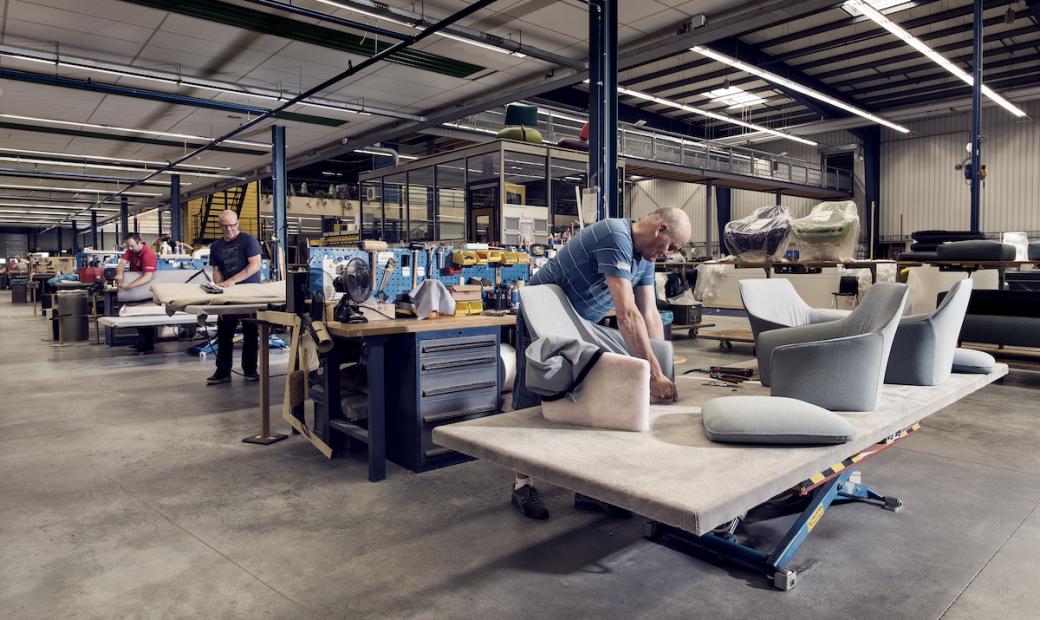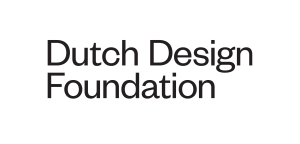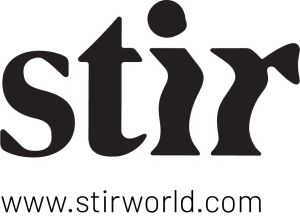
What if… we design our living spaces today according to the needs of 2030?
The seating area has been the focal point in the living room for decades. The sofa has been the place where people have spent their evenings together ever since the nineteen-sixties, when televisions became popular. This is slowly changing however, and these new trends are reflected in the way we design and use our interiors.
We need to look back into the past to explain these changes. Do you remember the furore in 2007, when the iPhone appeared on the market? A “swiping” Steve Jobs on the stage, and your initial realisation that you could now also answer your email while travelling? Or 2006, when Facebook opened up its digital social network to the whole world. YouTube and Twitter were launched that year, but WhatsApp was still a figment of somebody’s imagination....
Let’s fast forward to 2019: Desktop computers are a phenomenon of the past and have almost completely been replaced by laptops or tablets. Everyone has one or more personal ‘devices’, which we carry with us so that we are not tied to a fixed location. Watching TV and listening to music has become on-demand and tailored to individual tastes via smart algorithms. So we are more mobile than ever, and our viewing behaviour is also becoming more individualised. These changes also affect the use of our interior and the furniture in it: everybody using their own screen, operating their own program, working or viewing a website, and sitting on the item of furniture they find most comfortable.
These and other trends are changing the future faster and in ways that differ from our current expectations. However, we can already be sure of some things. For example, the major environmental challenges that are forcing us to look for sustainable alternatives. Or the popularity of “tiny houses” and ever smaller and more compact homes? And what about new living concepts with shared rooms and facilities? How do we satisfy our social needs in an individualizing world? What influence will the development of the 'Internet of things' have on how we live? And how will custom-made and mass-produced products relate to each other in 2030?
As an innovative company, Leolux wants to answer questions like these and present an inspiring and imaginative vision on living; off the beaten track, with pioneering interior design concepts that push past traditional boundaries. This conceptual approach forms the basis for Leolux's collaboration with designers in the What if Lab, and this voyage of exploration into the distant future will shape the consumer collections of tomorrow.

About Leolux
Leolux is one of Europe's leading manufacturers of branded designer furniture. The family business was founded in 1934 and the craftsmen based at the company's headquarters in Venlo produce all the furniture to order, offering consumers a huge range of models, coverings, finishes and options.
Several brands reside under the umbrella of Leolux Group. In addition to the premium brand Leolux, these include the lifestyle brand Pode and Évidence, a brand that focuses on conservative contemporary design with active comfort for compact interiors. The project collection, which brings together the most suitable products from the Leolux and Pode collections, is internationally positioned under the name of Leolux LX.
Leolux employs 350 people at several production sites in Venlo and a smaller location in Szolnok (Hungary). To support sales, Leolux has set up four Design Centers, extensive showrooms with specialised advisers in the Netherlands, Germany and Belgium.
As a family business, Leolux is well aware that future generations deserve a clean and pleasant living and working environment. In response, Leolux deliberately focuses on sustainable products, both in terms of the products’ lifespan and by using clean and safe raw materials, applying “sustainable” production methods and acting to ensure the well-being of its employees.
Through the years, Leolux has produced innovative products that have left a deep impression on the market and on furniture design as a whole. Leolux has every intention of living up to its reputation.
Rather than telling designers to predict the future, we ask them to consider how Leolux can develop in anticipation of possible scenarios. So the process leading up to these scenarios is at least as important as the outcome. By comparing the scenarios with each other, studying them and discussing them with the public, customers and business relations, Leolux subsequently explores how it can match these ideas to the questions and wishes that it experiences every day. This changes Leolux's role from simply reacting to what we already know to active participation in how we shape the environment of our future.
The design challenge
What are the factors that will determine our interior in the next 10 years? Which macrotrends that we currently see in the world can be translated into scenarios for residential living in 2030? And how can our current view of the future contribute to products that will make our lives more comfortable?
This What if Lab challenges designers to explore perspectives and develop visions about our personal living environment in the year 2030. Two of the visions developed by the participating designers will be selected and refined further for presentation during Dutch Design Week 2019. In other words, the challenge is to develop an appealing concept and find a way to make these visions tangible and experienceable. The results serve as a tool for:
- Testing public reactions to these possible scenarios
- Inspiration for future-oriented, new furniture collections from Leolux
- Developing conceptual frameworks for new and innovative applications in the interior
Leolux is looking for inquisitive designers who can think conceptually, have an affinity with interior design, home styling and our living environment, and who can highlight the conclusions of their research in an attractive presentation for DDW19.
Criteria
The purpose of this What if Lab is to develop future visions for living in 2030 on behalf of Leolux. We ask participants in the What if Lab to make these concepts suitable for visual communication; this can be achieved in several ways and the end result does not have to be a working prototype of an item of furniture or a collection. The outcomes can be speculative, futuristic and experimental. However, they must also meet a number of criteria:
- Designers must do justice to the profile of Leolux as a company in the proposals they present; after all the results are intended to be inspirational for Leolux.
- The point of the exercise is to look ahead to the year 2030, so not only is the vision you present important, the process you use as a designer to arrive at this outcome is just as relevant. So that both the conclusions and the reasoning behind your concept are clear.
- The results will be presented at DDW19. In addition to developing a vision, the designers should also come up with a proposal for this presentation.
- Leolux is looking for a visually expressive (and imaginative) vision on living, not for a new piece of furniture or the new furniture collection for 2030.
Registration
Registering for What if Lab: Living 2030 can be done until 23rd of June 2019 23:59 through this link. We do not need you to provide a design for this What if Lab yet, but would you please upload your brief motivation (max. 600 words) and a condensed portfolio (3-5 relevant projects).
Please note: with the registration form it isn’t possible to save the completed data in the meantime, in order to continue at a later time. We recommend working out your text before filling in the registration form.
Description of relevant projects: max. 150 words each project
Motivation for participation: max. 600 words
Images: JPG.
Minimal image size: 600 pixels wide, 72 dpi
Maximum file size: 2 MB
Before registering, please remember to read the Terms and Conditions of Participation below. Upon registration you automatically agree to the terms and conditions as described in the document 'Terms and conditions of participation WIL Leolux'. The terms and conditions are in Dutch, if Dutch is not your native language and you would like to discuss the details or more information please contact programme manager Dries van Wagenberg (dries@dutchdesignfoundation.com).
Conditions of participation
DownloadRemuneration
The three selected participants will each receive an amount of €750 for the hours they will spend participating in the masterclass given by Leolux. This masterclass will take place on the 4th of July 2019 at Leolux in Venlo and will last all day.
In addition, participants will each receive an amount of €2,500 for the development of a concept and the corresponding intermediate meetings and a presentation on the 20th of August 2019.
The participant(s) selected to develop the concept into a design with an elaborate visualisation (for example in a prototype, concept, drawing or video) will receive a fee of € 7,500. This remuneration is to compensate for the hours worked, cost for execution in the exhibition at Dutch Design Week will have to be agreed on by Leolux. All amounts are excl. VAT.
The final concepts, prototypes and scenario’s will be exposed during Dutch Design Week.
Intellectual property
The intellectual property rights ("IP") and copyrights of the concept designs not selected by the jury for further development on 20/08 2019 will remain entirely with the participants. Leolux is only granted the right of use for non-commercial purposes (e.g. publicity purposes), which may be used after informing the relevant Participant. The name of the creator must always be stated.
Leolux is entitled to use the intellectual property rights from the concepts selected for further development within the scope of the What if Lab, free of charge. As a result of this transfer, Leolux has unlimited rights to exploit the design, without any compensation other than the remuneration for participation in the What if Lab. However, Leolux is obliged, if it decides to continue to develop the design after What if Lab, first and foremost to enter into exclusive discussions with the designer in question in order to investigate whether the designer could and would like to develop it further.
The output we expect from this assignment are visions of the future, which Leolux can use to help develop the future collections. So designs for specific pieces of furniture are not required. However, if furniture designs are created as part of the process of developing a concept, and Leolux wishes to put these designs into production at some stage, new agreements must be made between the designer and Leolux to allow this.
A complete version of the terms and conditions regarding Intellectual Property can be found in the Terms and Conditions of Participation.
Programme
After the deadline for registration (23-06-2019) has passed, the registrations will be transferred to Leolux. In consultation with DDF and an external designer, three design studios will be selected to work in this What if Lab. They will be invited to participate in a masterclass at Leolux, after which they will independently develop a concept for the subsequent seven weeks. Progress interviews will be planned with Leolux to discuss headway, criteria, expectations and check practical feasibility.
The designers will present the final concepts to a jury comprising of Leolux employees, a representative of DDF and an external designer. Based on these presentations and the contact during the project, they will decide on whether Leolux would like to continue to develop one or more of the concepts within the What if Lab. If this proves to be the case, another period of eight weeks will follow for the designer(s) concerned, in which the concept will be fleshed out with a number of intermediate meetings and a Demo Day in which the concepts will be developed further. An extensive visualization is expected that shows the follow-up research subsequent to the concept phase. These results will be presented to Leolux on the 25th of September 2019. The designer(s) will develop these results in collaboration with Leolux and will be exposed during Dutch Design Week, 19 – 27 October.
Timeline
| Deadline for applications | 23 June |
| Masterclass for selected designers | 4 July |
| Update meeting 1 | 11 July |
| Update meeting 2 | Date to be determined |
| Presentation concepts and selection | 20 August |
| Update meeting 3 (clear what will be presented at DDW) | 10 September |
| Demoday | 25 September |
| Prototype/concept/scenario finished | 14 October |
| Dutch Design Week | 19 - 27 October |
Inspiration
Many reports and outlooks for the year 2030 exist, such as those prepared by ISS and Deloitte, which attempt to identify megatrends that will develop in the coming years. During the master class, Zuzanna Skalska will also reveal the trends she sees to the participating designers. Furthermore, understanding the past often gives us the ability to look into the future successfully. Would you like to know more about the history of Leolux? Download 'Talenten', a reference work on this subject, below.
Talenten
DownloadQuestions
If you have any questions about this What if Lab, please contact the programme manager Dries van Wagenberg via dries@dutchdesignfoundation.com.










